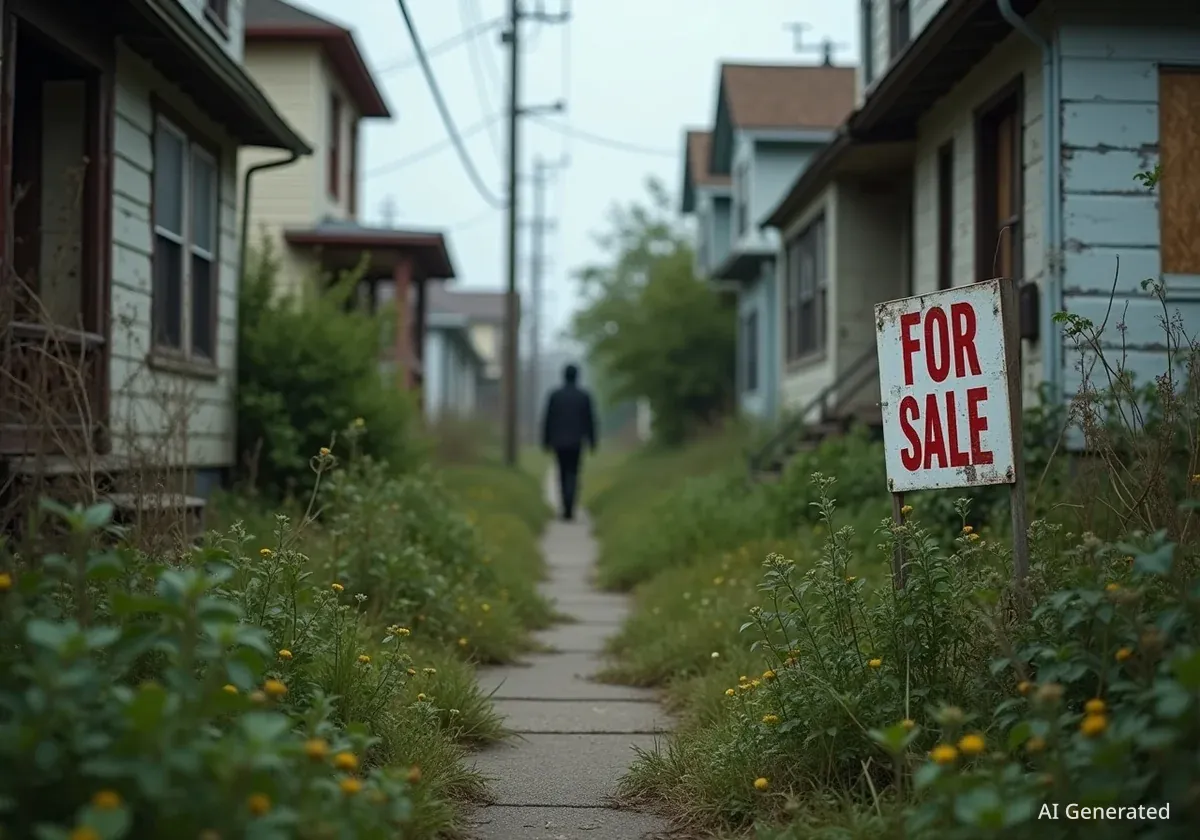The City of Richmond is currently facing a significant revenue shortfall, with more than $32 million in overdue real estate taxes as of mid-2025. This substantial amount of uncollected funds places a strain on the city's budget while also contributing to the decline of neighborhoods where delinquent properties often become sources of blight and safety concerns.
The issue has gained new urgency as the current administration, under Mayor Danny Avula, must decide how to address a problem that has persisted for years. A previously successful program to auction off tax-delinquent properties was halted in 2023, leaving millions in potential revenue uncollected and leaving residents to deal with the consequences.
Key Takeaways
- The City of Richmond is owed over $32 million in delinquent real estate taxes.
- A program to auction tax-delinquent properties was paused in 2023 by the previous administration.
- Neglected properties with unpaid taxes are causing blight and creating problems for residents in several neighborhoods.
- Mayor Danny Avula's new administration is now responsible for finding a solution to the revenue shortfall and property neglect.
The Scale of the Problem: A $32 Million Shortfall
According to official city records from July 2025, the total amount of delinquent real estate taxes owed to Richmond has surpassed $32 million. This figure represents a significant loss of revenue that would typically fund essential public services such as schools, infrastructure maintenance, and public safety.
The shortfall comes at a challenging time for the city, which has faced increased expenses, including costs associated with a water crisis in January 2025. The inability to collect these millions in property taxes puts additional pressure on a budget already strained by unforeseen circumstances.
What Could $32 Million Fund?
To put the figure in perspective, $32 million could cover the annual salaries for hundreds of teachers, police officers, or firefighters, or fund major capital improvement projects across the city, such as road repairs or park upgrades.
The problem is not new but has been compounded by a recent policy change. While the city has legal recourse to collect these funds, the primary method for doing so has been inactive for years.
Impact on Richmond Neighborhoods
Beyond the financial implications for the city government, the issue of tax-delinquent properties has a direct and negative impact on residents. Many of these properties have been neglected for years, some for nearly two decades, transforming them into neighborhood eyesores.
In various parts of the city, these properties manifest as:
- Vacant lots with overgrown vegetation that encroaches on sidewalks and neighboring homes.
- Blighted houses, some with evidence of fire damage, that are uninhabitable and attract pests.
- Parcels of land that have become illegal dumping grounds, creating health and safety hazards.
For example, a property in the 1200 block of W. Laburnum Avenue has been tax delinquent for almost 20 years, standing as a visible sign of neglect. Similarly, an overgrown parcel on N. 31st Street is heavily impacting an adjacent home and public sidewalk. These are not isolated incidents but part of a city-wide pattern affecting property values and the quality of life for responsible homeowners.
The Legal Framework for Action
Under Virginia state law, municipalities like Richmond are permitted to take legal action to sell properties when real estate taxes are delinquent for a specified period. This process, typically a judicial sale or auction, allows the city to recover the unpaid taxes, penalties, and interest, and transfer the property to a new owner who can bring it back into productive use.
Residents living near these properties often report issues with rodents, crime, and a general sense of neighborhood decay, feeling that they are unfairly shouldering the consequences of others' failure to pay taxes.
A Solution Paused: The Delinquent Property Auctions
In 2017, following an initial investigation into the widespread problem of tax delinquency, the City of Richmond took decisive action. The city began working with Motley Asset Disposition Group to auction off properties with long-standing unpaid tax bills. This program proved to be an effective tool for both recouping lost revenue and addressing blighted properties.
The auctions successfully generated millions of dollars for the city and placed neglected properties into the hands of new owners who were then responsible for their upkeep and tax payments. However, this collection effort was brought to a halt in 2023.
Mark Motley of Motley Asset Disposition Group has previously spoken about the effectiveness of the auction process in helping municipalities recover funds and resolve issues with problem properties. The auctions provide a clear, legal path to resolution.
The decision to pause the auctions was made during the administration of former Mayor Levar Stoney. Since that time, the city has not utilized this method to collect on its delinquent accounts, allowing the total amount owed to grow and the condition of the associated properties to worsen.
New Leadership Confronts an Old Problem
With less than a year in office, Mayor Danny Avula is now tasked with confronting this multimillion-dollar issue. His administration must determine the best path forward for collecting the outstanding debt and managing the hundreds of blighted properties scattered throughout Richmond.
In a recent interview, Mayor Avula acknowledged the complexity of the situation and the need to find a sustainable solution. The administration is reportedly reviewing the city's options, which could include restarting the property auctions or exploring alternative collection strategies.
The pressure to act is mounting, not only from residents affected by the blighted properties but also from the fiscal realities facing the city. Every dollar of the $32 million owed is crucial for maintaining and improving the services that all Richmond residents rely on.
The city's next steps will be closely watched by residents and community leaders who have been waiting for years for a resolution to this persistent problem. The challenge for the Avula administration will be to implement a strategy that is both effective in collecting revenue and fair to all parties involved, while also addressing the direct impact on the city's neighborhoods.





